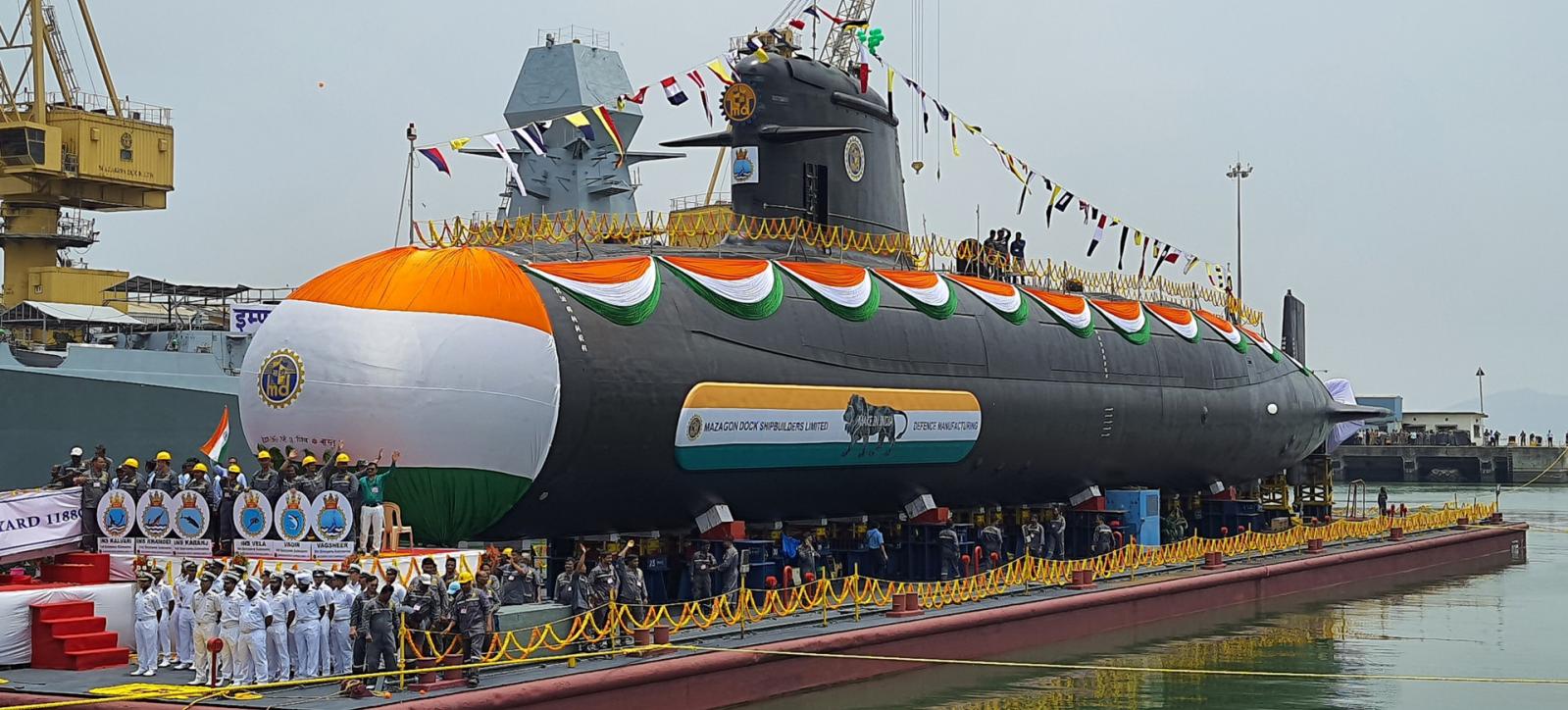India and France announced their agreement to construct three new Scorpene-class submarines for the Indian Navy in July 2023. Under the terms of the arrangement, which was purportedly worth around $4.5 billion, the submarines would be produced in India by Mazagon Dock Shipbuilders Limited (MDL) in cooperation with the French Naval Group.
For several reasons, this agreement is crucial. First to benefit from modernization will be the submarine fleet of the Indian Navy, which must be replaced as it is currently obsolete. Additionally, it will strengthen the long-standing strategic partnership between France and India. Thirdly, because MDL would be in charge of building the submarines with permission from the Naval Group, it will help the growth of the Indian defense sector.
Critics of the agreement have not gone unnoticed, though. Some have complained that the transaction price is too high and that India could have constructed the submarines more affordably. The transfer of sensitive technology to India has raised worries from others. The deal will proceed despite these worries. It is a crucial milestone in the modernization of the Indian Navy and will deepen the strategic alliance between France and India.
Some of the recent highlights about the Navy and France Submarine deal:
July 12, 2023: Initial approval is granted by India’s Defence Acquisition Council (DAC) for the procurement of three Scorpene-class submarines and an additional 26 Rafale fighter jets for the Navy.
July 14, 2023: An action plan for future defense cooperation between France and India includes building three more Scorpene-class submarines for the Indian Navy.
July 15, 2023: The roadmap document has been updated to remove the statement regarding building three more submarines.
July 18, 2023: According to Indian Defence Minister Rajnath Singh, negotiations are still going on to purchase three more submarines.
The phrase regarding building three further submarines has been deleted from the roadmap paper, which is the most significant aspect of recent news. As a result, there has been talk that the purchase might not close. However, according to Rajnath Singh, India’s defense minister, the agreement is still being negotiated, so it is too soon to say whether it will be scrapped.
A strategy for future defense cooperation between India and France was also announced, another significant aspect of the most recent news. The DAC had first approved the deal. Several more initiatives are listed on the roadmap, like the combined development of a combat aircraft engine and the construction of naval vessels.
A critical step in the Indo-French strategic alliance is the submarine agreement between the Indian Navy and France. In addition to advancing the Indian defense sector, the deal will assist in modernizing the submarine fleet of the Indian Navy. Moreover, the agreement is considered a means by which India can confront China’s expanding naval might.
Following the deal’s development over the next weeks and months will be intriguing. The Indo-French strategic cooperation will significantly boost if the contract is approved, and India’s naval capabilities will be strengthened.
The 25th anniversary of the Indo-French strategic alliance is commemorated by the Indian Forces’ participation in the Bastille Day parade. A parade is being held in honor of the French Revolution and the storming of the Bastille on July 14, 1789. Additionally, it serves as a display of French military might and a testament to the nation’s dedication to freedom and democracy.
The presence of Indian Forces at the parade is evidence of the growing mutual respect and cooperation between France and India. Additionally, it acknowledges India’s increasing military might and its status as a regional and global force.
A tri-services force of the Indian Armed Forces is seen participating in the parade with their French counterparts. The Punjab Regiment, a unit with a long and illustrious history of duty in both World Wars, will command the contingent. Additionally, members of the Indian Navy and Air Force are part of the contingent.
A significant event that will contribute to the development of the Indo-French strategic alliance and enhance India’s standing as an essential world power is the participation of the Indian Forces in the Bastille Day parade.
The Scorpene-class submarine:
The French Naval Group created the conventional diesel-electric Scorpene-class submarine. Torpedoes, anti-ship missiles, and surface-to-air missiles are among the several weapons carried by this stealthy submarine. The Scorpene class also has cutting-edge sonar technology, enabling it to find and follow hostile submarines.
The Future of the Deal
The deal is likely to go through despite these obstacles. It is a big step towards modernizing the Indian Navy and will reinforce India and France’s strategic alliance. In the early 2030s, the Indian Navy will receive the submarines.
Along with the benefits mentioned above and the downsides, there are a few more factors to consider regarding the submarine agreement between the French Navy and the Indian Navy. The arrangement, in the first place, is a part of India’s larger goal to modernize its submarine fleet. Another objective might be for France and India to work together to develop nuclear-powered submarines. Second, it enables India to compete with China’s growing naval power. India is trying to ensure it has the means to protect itself as China has been rapidly expanding its submarine fleet.
Overall, the Indo-French strategic alliance, the submarine agreement between the Indian Navy and France, is a significant development. The deal would advance the Indian Navy’s submarine fleet and defense industry. The contract is also considered a means by which India might challenge China’s expanding naval might.

